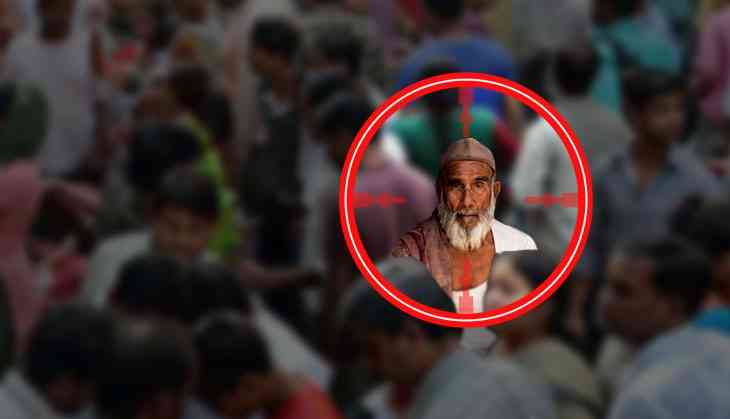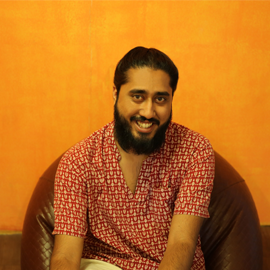Mob lynchings aren't about cows, but the erasure of India's Muslim identity

Trying to avoid the traffic snarls that come with the rains in the Capital, I found myself taking the metro recently, when I saw something that underlined the atmosphere prevailing in the country. As passengers flooded the metro coaches, cramming them to capacity, individuals started to blur into a sweaty mass of bodies. However, three passengers who boarded amidst all the chaos caught my attention.
These three were young boys. The oldest couldn't have been more than 12, while I pegged the youngest at around eight or nine. Clad in white kurtas with matching pyjamas, the three boys wore skull caps, their attire clearly marking them out as Muslims.
The sight of these young Muslim boys, unaccompanied, and therefore completely vulnerable, made me worry for their safety. That these boys, innocent and unblemished, had anything to fear would ordinarily be unthinkable. However, Junaid Khan, a 16-year-old, had been lynched scarcely a week prior. Age was of no consequence to his murderers. His Muslim identity was all it took, a fact his murderers made amply clear as they hurdled anti-Muslim abuses while assaulting him.
In the backdrop of Junaid's lynching, was it unreasonable to fear for the safety of these boys? They were, after all, only a few years younger than Junaid.
The danger of being Muslim
In that moment, I not only became aware of their vulnerability, but also my own. As a bearded man, partial to kurtas and slippers, it wouldn't take much imagination to peg me for Muslim. Relatives and friends, equally well-meaning and paranoid, have warned me of the same. And I'm not an outlier.
Mere months ago, my brother, who sports a goatee, was told off by his college for having a “Muslim” beard. The reprisal came not because of any issues the college had with Islam, but because the institute was situated in Mangalore, a city where Muslim youth have been targeted by hardline Hindu groups in the recent past. “We cannot take responsibility for his safety if he keeps the beard,” was the message my parents received.
Being mistaken for Muslim, in this new India where communal violence is the new norm, is a very real danger. Because, as we've seen time and time again, this spate of violence isn't dependent on fact. Perception is all it takes.
We saw that with Mohammed Akhlaq, who was lynched over 'beef' in his fridge, which turned out to be mutton. With Pehlu Khan, a dairy farmer who was lynched after being accused of cattle smuggling. In reality, their only crime was their religion, a notion underlined by the fact that one of the men in Pehlu Khan's company was spared after identifying himself as Hindu. To be Muslim, it seems, is to be guilty of any accusation, and deserving of the harshest form of punishment.
Erasure
In a situation as volatile as this, with scant action (rather some tacit support) from the government, it is fast becoming untenable to be Muslim, or even appear Muslim. And this is ultimately the point of the lynchings, not cow-protection or Hindu values, but the complete and total erasure of the Muslim. They may be allowed to exist, but they will be pushed into invisibility.
This move into the shadows will not be precipitated by any overt government action. Instead, this erasure of the Muslim identity will, if present trends continue, be one that is self-imposed by the community itself. As appearance becomes a death sentence, Muslims themselves will shed visible marks of religion and culture in favour of the safety that comes with inconspicuousness and anonymity.
This is no new experiment. In fact, this is a model that has been used successfully by our incumbent PM himself. In conversations with the activist Harsh Mander, he spoke at length about how this scenario became the new normal in the aftermath of communal riots that rocked Gujarat under then-CM Modi's tenure. Following the violence, that many believe had the tacit backing of the state, Muslims have actively toned down their religious identity, even, in some cases, adopting more Hindu names to avoid conflict.
Then as now, the ruling dispensation avoided responsibility through silence, inaction, and feigned cluelessness. Its proxies, meanwhile, will continue these actions, knowing full well that they have the blessings of those in power. For a leader and regime obsessed with optics, this lack of direct culpability is enough.
A multi-pronged effort
The horror of the lynchings, immortalised in video recordings proudly taken by the perpetrators, is so visceral that it makes one believe these attacks are the only threat to the Muslim identity. What it helps mask though, is that this is only the final stage of a plan that has been put in place to vilify and otherise the Muslim.
The BJP and its ideological allies have systematically gone about portraying Muslims as un-Indian. This can be seen in their repeated attempts to paint Mughals as blood-thirsty invaders. There have been repeated instances of Mughal kings being villainised, their legacies painted over or underplayed. In their stead, Hindu monarchs have been propped up, valourised far beyond their accomplishments in some cases, and their struggles against the Mughals portrayed as the defence of India – despite the concept of India being non-existent at the time.
This notion, of Islam being alien, is further perpetuated through ghar wapsi campaigns, where Indian identity is predicated on Hindu ancestry and a return to Hinduism. Meanwhile, scaremongering campaigns like 'love jihad' are used to demonise Muslims, with propaganda being used to make it seem like Muslims have a concerted plan to disrupt the social fabric of the country – a structure premised on Hindu dominance.
Even seemingly banal acts, such as renaming roads named after Muslims, or BJP members avoiding the President's iftaar party, are all steps in this anti-Muslim direction. Make no mistake – the groundwork for the erasure of the Muslim from Indian society has already been laid, and India's syncretic identity may soon be a thing of the past.


